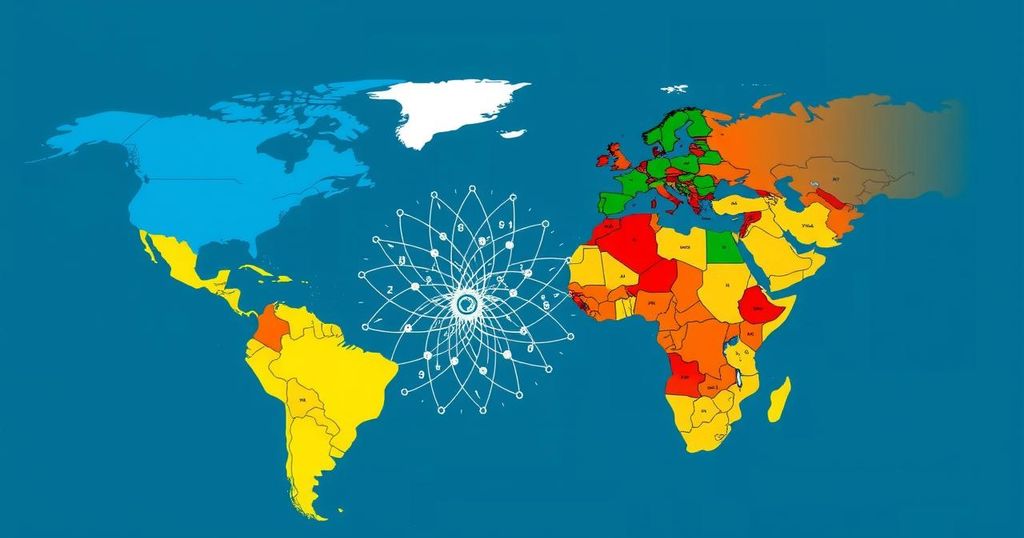Wealthier Nations Implement Compensation for Climate Damage in Developing Countries

Richer countries are beginning to compensate poorer nations for climate change-related damages, exemplified by Malawi farmer Christopher Bingala’s receipt of $750 for losses from Cyclone Freddy. Approximately $720 million has been pledged for this cause, but experts warn it is insufficient as climate disasters intensify. Ongoing negotiations at COP29 aim to finalize funding frameworks and support broader disaster recovery efforts.
The devastating impact of climate change on low-income countries is exemplified by the story of Christopher Bingala from Malawi, whose life was forever altered by Cyclone Freddy in 2023. Amidst the chaos of floods that displaced hundreds of thousands, Bingala received a compensation payment of approximately $750, marking one of the initial instances of loss and damage funding introduced to compensate those affected by climate-related disasters. This funding aims to address the inequity faced by poorer nations that contribute minimally to greenhouse gas emissions but suffer the gravest consequences of climate change.
The establishment of a special fund to assist developing nations has gained momentum, with roughly $720 million already pledged by wealthier countries such as the European Union and the United States. However, climate experts express concern that this amount will insufficiently cover the rising costs associated with increasingly severe weather events. Currently, negotiations are ongoing at the COP29 climate summit in Baku, Azerbaijan, to solidify the financial obligations owed to lower-income countries as part of a broader climate finance initiative.
Bingala’s family has transitioned to a more secure living situation, having utilized the compensation to build a new house in a less flood-prone area. Though challenges remain, including reconnecting his children with education, the payment exemplifies the emerging pilot programs aimed at establishing a comprehensive system for loss and damage funding. Such initiatives underscore the urgency as climate-related devastations become more frequent and impactful. According to experts like Yolande Wright, individuals in low-income countries often lack adequate insurance protections, making these funds vital for recovery and rebuilding efforts.
As the climate crisis intensifies, the financial burden on developing nations manifests itself in soaring national debts and diminishing resources. While the outlined $720 million pledge is a step forward, the framework for distributing funds effectively remains nebulous. Many advocate for a more expansive utilization of the fund to encompass preventative measures, including relocating vulnerable communities. Experts predict that as extreme weather events escalate, the need for loss and damage funding could reach an alarming $250 billion annually by 2030.
The issue of climate compensations centers on the disproportionate suffering of low-income countries due to climate-related disasters, despite their minimal contribution to global emissions. This funding challenge stems from international negotiations where wealthier nations have committed to providing financial assistance for loss and damage. The recent catastrophic cyclone events have underscored the necessity for immediate action, as timely access to funds can significantly aid recovery efforts. Countries are currently working towards establishing a functional framework to facilitate these damages, along with appropriate guidelines for disbursement. Overall, the discussions encompass broader themes of equity in climate finance, national debts incurred as a result of climate disasters, and the essential need for sustainable development practices.
The unfolding challenges surrounding loss and damage funding highlight the urgency for richer nations to take responsibility for climate change impacts and commit to assisting lower-income countries adequately. With the imminent threat of climate crises becoming more pronounced, the necessity of generating sustainable funding solutions stands paramount. Moving forward, it is essential for the international community to recognize and address the needs of vulnerable populations effectively. As articulated by leaders in affected regions, the collaborative efforts of wealthier nations could ultimately serve both humanitarian and self-preservation interests in the face of growing climate-related challenges.
Original Source: www.kwit.org






